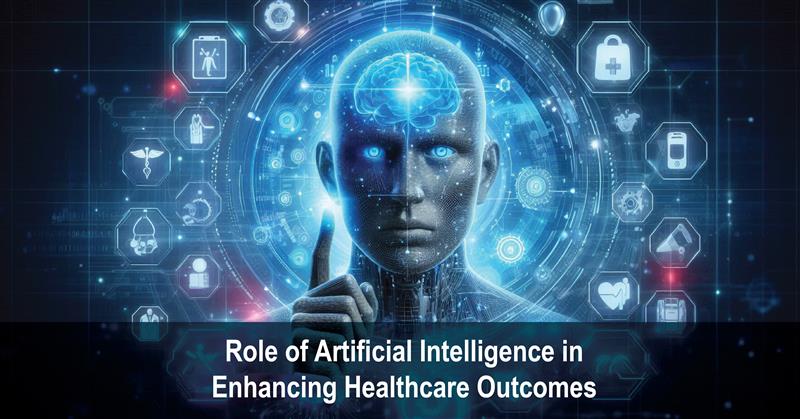Artificial Intelligence or AI, is progressively affecting several industries, and healthcare is among the most exciting ones. The addition of artificial intelligence in healthcare systems has brought an outstanding improvement in how practitioners diagnose, treat, and manage diseases. Digital health technology one more time proves that AI usage in healthcare will lead to its enhancement in terms of efficiency and accuracy. In this particular blog, the explicit focus is given to identifying the roles of AI in the improvement of outcomes in the sphere of healthcare, including such fields as remote monitoring, predictive analysis, individual approaches to treatment, and decision-making. Many changes happening in AI are not just about swapping and displacing traditional approaches but about supplementing them for the overall well-being of the patients.
AI in Remote Patient Monitoring
Remote patient monitoring (RPM) has risen to a higher level due to its usefulness in managing chronic diseases and mental health disorders. That is why it is so important for RPM to work in harmony with AI and use its tools for real-time data analysis and prediction. For example, the automatic RPM systems assisted by AI can automatically track a patient’s conditions and health risk factors to flag impending emergencies. It enables early medical intercessions, which help enhance a patient’s well-being as earlier pointed out. AI algorithms can pull data from wearable devices and analyze if a patient’s health is deteriorating so that action can be taken.
However, AI increases the effectiveness of RPM systems since manual record-keeping leads to mistakes most of the time. This makes it easy for healthcare providers to have up-to-date, accurate, and relevant information that can help them in making the right decisions. This is because some chronic conditions like diabetes, cardiovascular diseases, and mental health conditions require constant monitoring, which RPM and the incorporation of AI make easy.
Predictive Analytics and AI
Another application of AI that is gaining prominence is predictive analytics. AI is also relatively good at predicting the patient’s further health condition based on the provided historical data. This capability is especially important for the identification of high-risk patient populations that may later develop chronic diseases and can be worked on early. For instance, AI can review electronic health records (EHRs) of patients and give a prediction for potential diseases like diabetes or cardiovascular diseases. Through these outcomes, the health care providers can be in a position to take precautions to retard the diseases, for instance, through change in lifestyles or early treatment for the diseases.
Healthcare also identifies the use of AI-powered predictive analysis at hospitals similar to patient care. For example, AI algorithms can estimate which patients are prone to developing some complications after surgery, and proper precautionary measures can be taken. It is for this reason that the management not only enhances the quality of patient care but also enhances a situation in which a lot of money cannot be spent on treating complications. Also, AI can identify readmissions; thus, hospitals can prevent readmissions by incorporating various measures into the patient’s care plan.
